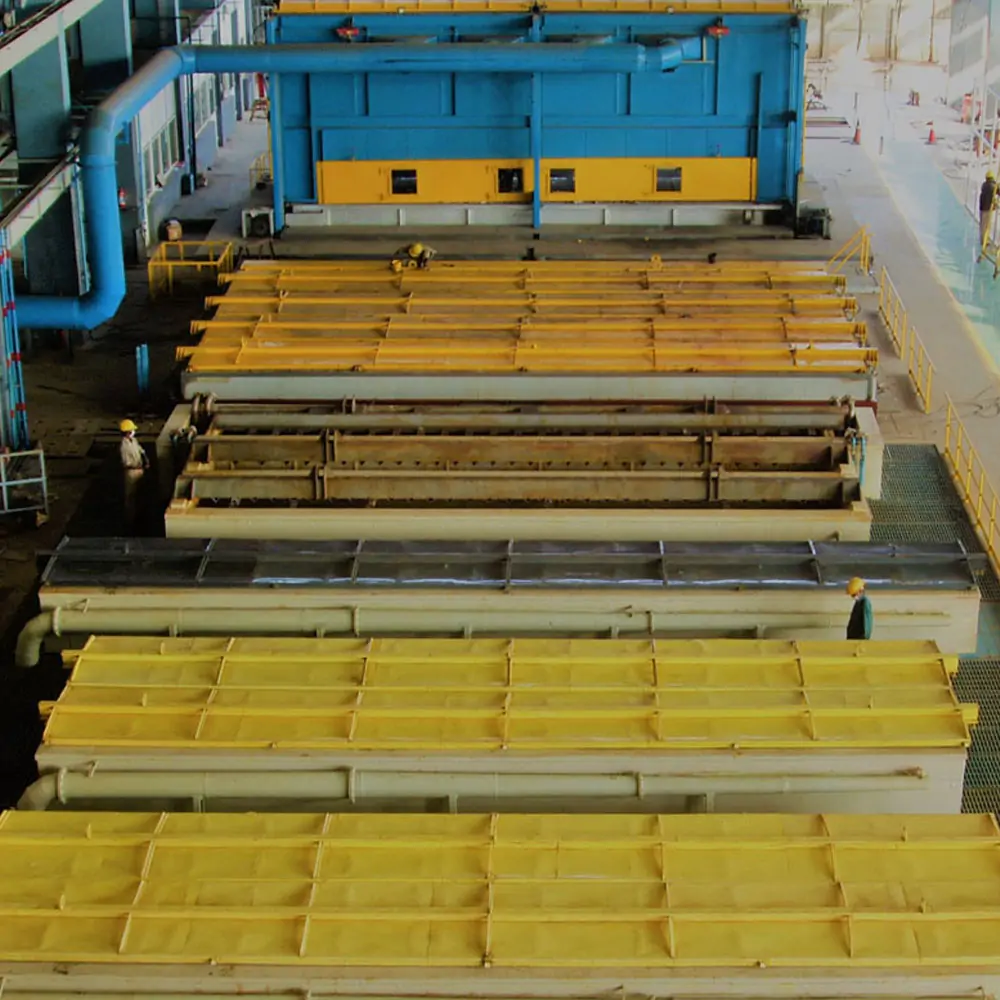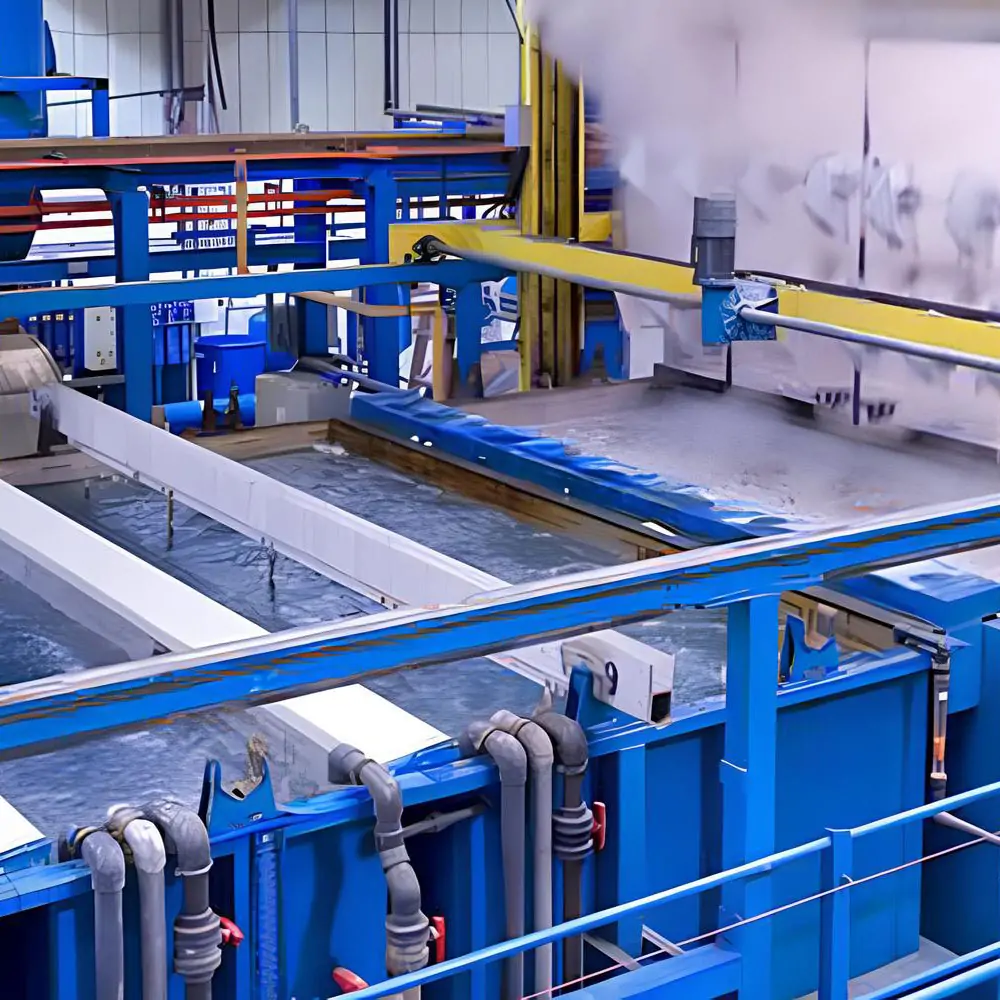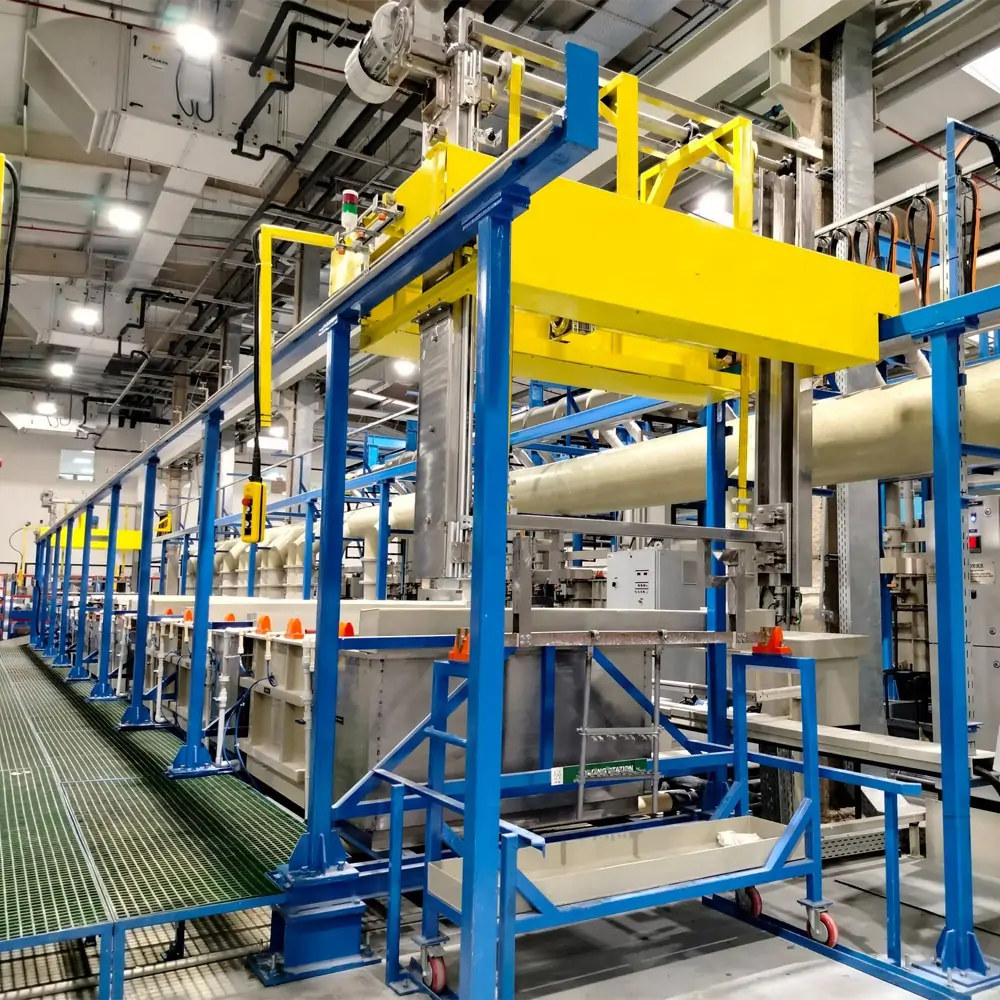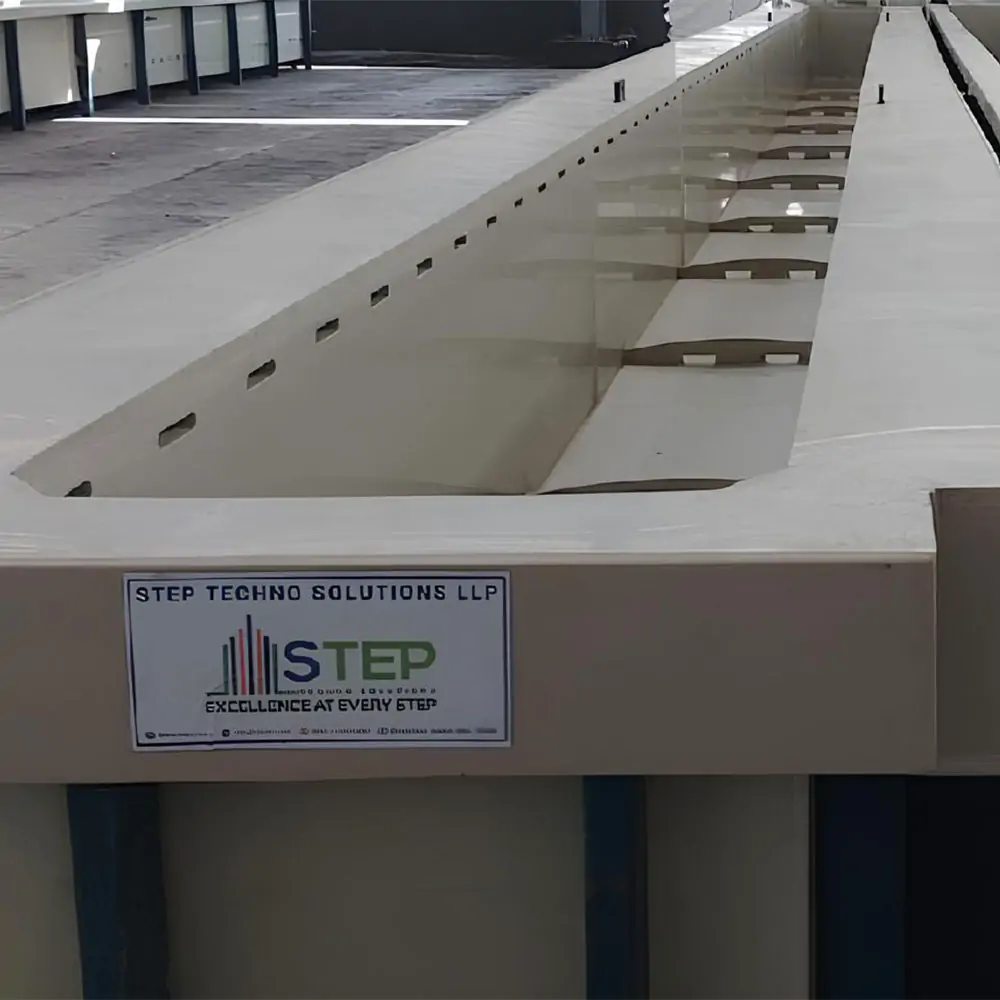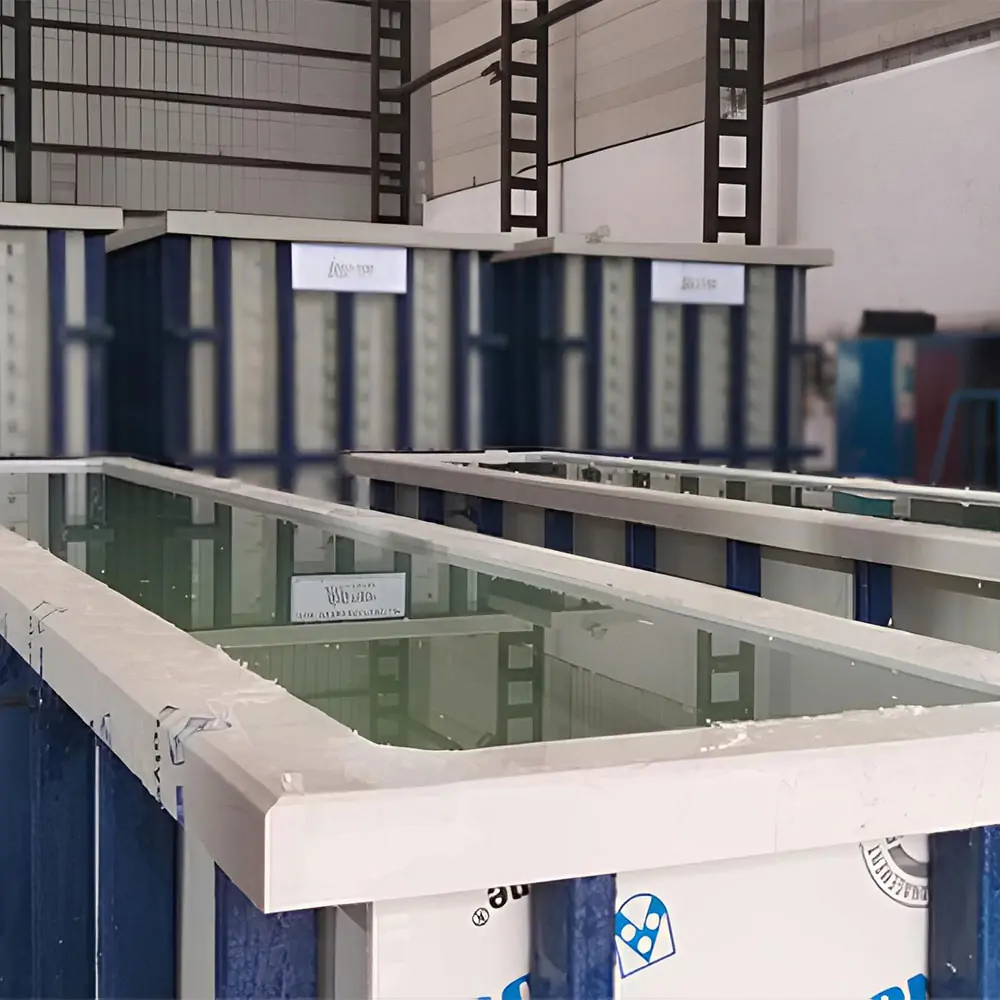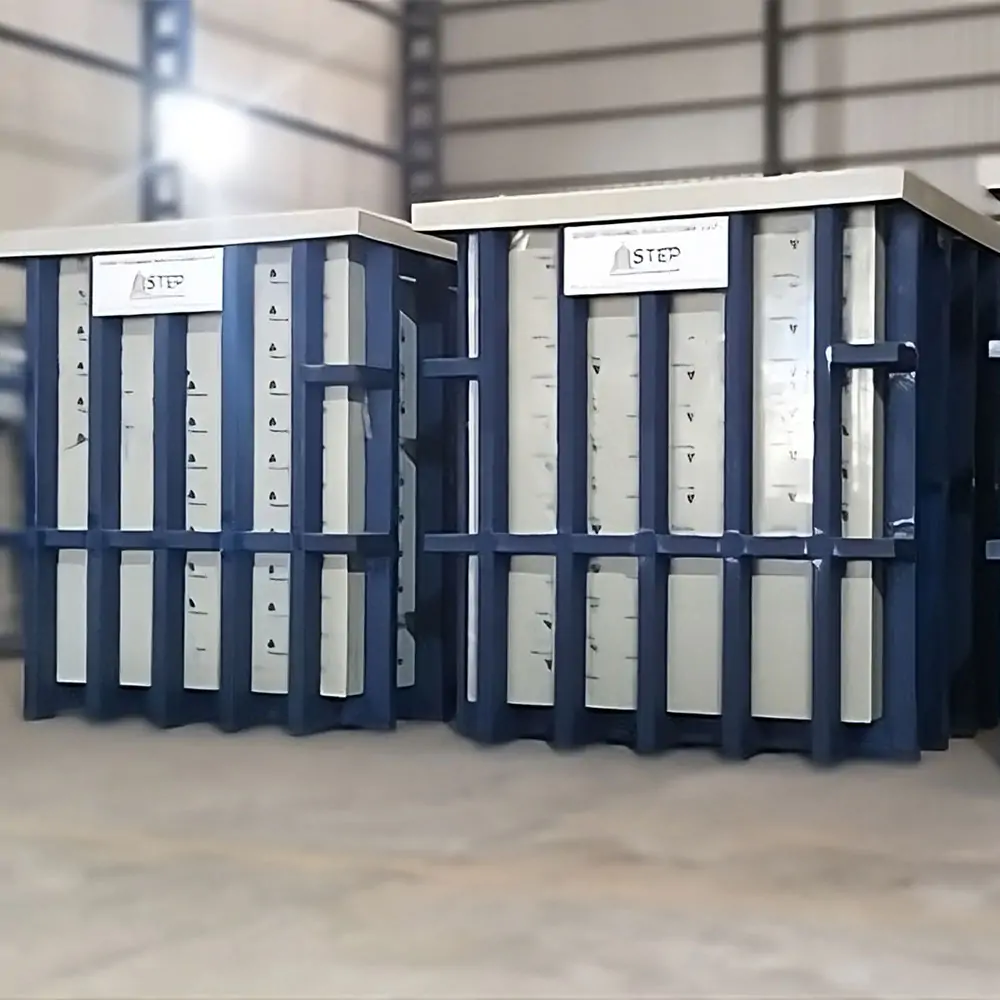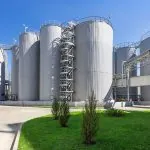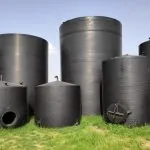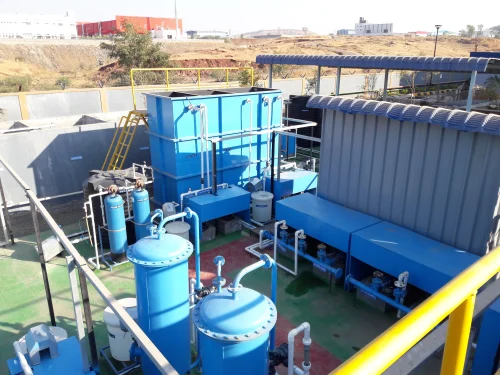ETP Tank Solutions for Efficient Wastewater Treatment
Step Techno Solution is a leading manufacturer of ETP Tank in India. With industrialization on the rise, industries are generating larger volumes of wastewater, often containing hazardous chemicals and pollutants. In the face of this growing challenge, the need for efficient wastewater treatment solutions has become important. An Effluent Treatment Plant (ETP) tank plays an important role in addressing this challenge. These tanks are designed to treat effluent and wastewater from industrial operations, making sure that harmful contaminants are removed before the water is discharged into the environment or reused. STEP® Techno Solutions stands at the center of this sector, offering reliable, customizable, and eco-friendly ETP tank solutions to various industries across India.
The growing concerns about environmental degradation and strict government regulations make the use of ETP tanks indispensable for industrial plants, particularly in industries like textiles, pharmaceuticals, food processing, and chemical manufacturing. Having an efficient ETP tank system in place not only supports regulatory compliance but also promotes sustainability by reducing water pollution and conserving water resources. In this, we will explore the function, importance, and advantages of ETP tanks, why STEP® Techno Solutions is the manufacturer for high-quality ETP tanks in India.
What is an ETP Tank and How Does it Work?
An ETP tank is an important component of an Effluent Treatment Plant (ETP) system, designed to treat wastewater or effluent generated by various industrial processes. The primary purpose of a tank is to remove contaminants such as chemicals, heavy metals, suspended solids, and other pollutants from industrial wastewater before it’s released into the environment. The tank serves as a containment system where various treatment processes like sedimentation, filtration, biological treatment, chemical treatment, and coagulation occur.
The way an ETP tank works can be broken down into a few key stages:
- Pre-Treatment: Initially, wastewater flows into the ETP tank, where large particles and debris are removed using physical processes such as screening. This step makes sure that larger contaminants do not interfere with the treatment process.
- Coagulation and Flocculation: In this stage, chemicals are added to the wastewater to facilitate the removal of suspended solids. Transfers the neutralized effluent to a coagulant bath where a coagulant is added.
- Sedimentation: Once the flocs are formed, the wastewater is allowed to settle in the ETP tank. During sedimentation, the heavier particles settle at the bottom, while the clarified water rises to the top.
- Biological Treatment: Many ETP tanks incorporate biological treatment, where microorganisms break down organic contaminants. This is especially important for industries like pharmaceuticals and food processing, where organic matter is a significant pollutant.
- Discharge/Reuse: After all these processes, the treated water is either safely discharged into water bodies or repurposed for industrial use, irrigation, or even potable water in some cases.
Why is an ETP Tank Important?
ETP tanks are important for industries that produce wastewater with high levels of pollutants. Without proper treatment, untreated effluent can harm the environment, contaminate natural water bodies, and pose significant health risks to humans and wildlife. Here are some reasons why ETP tanks are important:
- Compliance with Environmental Regulations: Regulatory bodies, such as the Central Pollution Control Board (CPCB) in India, impose strict standards on the discharge of industrial wastewater. Tanks help industries comply with these regulations by treating wastewater to a level that is safe for the environment.
- Protection of Water Resources: Industrial wastewater contains pollutants that can severely affect the quality of water sources. Tanks prevent the release of toxic substances into rivers, lakes, and groundwater, preserving water quality for human consumption and agriculture.
- Health and Safety: Exposure to untreated industrial effluent can lead to a variety of health issues, from skin infections to respiratory diseases. By removing harmful contaminants, Tanks protect workers and local communities from potential health hazards.
- Cost-Effective: Although the initial investment in an ETP tank might seem high, it helps industries save costs in the long run by avoiding legal fines and making sure the safe discharge or reuse of water. Additionally, treated water can often be reused within the plant, reducing the need for fresh water and lowering operational costs.
- Promotes Sustainability: As industries are becoming more conscious of their environmental footprint, ETP tanks contribute to sustainable operations by minimizing water pollution, reducing the consumption of fresh water, and promoting the reuse of treated water.
Why Choose STEP® Techno Solutions for ETP Tanks?
When it comes to ETP tank manufacturers in India, STEP® Techno Solutions is a name that stands out. With years of experience in the industry, we specialize in providing innovative wastewater treatment solutions adjusted to the needs of various sectors. Our ETP tanks are manufactured using the latest technology and the best materials, making sure that long-lasting durability and superior performance. We understand that each industry has its own specific wastewater treatment requirements, and we work closely with our clients to design customized solutions. Whether you need a small-scale treatment system or a large, industrial-scale setup, STEP® Techno Solutions has the expertise to deliver an effective solution
Conclusion
ETP tanks are an important part of industrial wastewater treatment systems, helping industries comply with environmental regulations, protect water resources, and promote sustainability. STEP® Techno Solutions is a leading manufacturer of ETP tanks in India, offering a wide range of high-quality, customizable solutions for industries of all sizes. By choosing our tank systems, you are investing in a reliable, cost-effective, and eco-friendly solution for managing wastewater efficiently.
For more information about ETP tanks we can help you meet your wastewater treatment needs, please call us at +919898875757 or mail us at info@steptsl.com. Explore our range of products and find the right solution for your industrial wastewater treatment needs.
Frequently Asked Questions (FAQ)
1. What is an ETP tank?
An ETP tank (Effluent Treatment Plant tank) is used to treat industrial wastewater by removing harmful contaminants, making the water safe for discharge or reuse.
2. Why do industries need ETP tanks?
Industries need tanks to comply with environmental regulations, protect water bodies from pollution, and reduce operational costs through water reuse.
3. How does an ETP tank work?
A tank treats wastewater through processes like coagulation, sedimentation, biological treatment, and filtration to remove pollutants and purify water.
4. What industries use ETP tanks?
Industries like textiles, pharmaceuticals, chemicals, and food processing use ETP tanks to treat wastewater before disposal or reuse.
5. How do I maintain an ETP tank?
Regular maintenance of ETP tanks involves cleaning, monitoring chemical treatments, checking for leaks, and making sure that pumps and filters are functioning properly for optimal performance.

